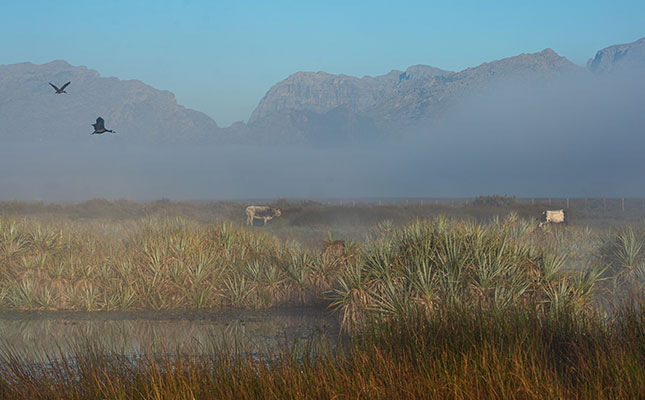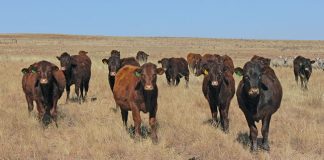
Photo: WWF
Wetlands and the essential role these areas play is often overlooked, neglected and abused.
Commemorating World Wetlands Day on Wednesday, 2 February, Shelly Fuller, the World Wide Fund for Nature’s (WWF) conservation champions programme manager in South Africa, said wetlands provided essential eco-services for water and food security, but were also the most threatened natural areas in the world.
The call to action for this year’s commemoration was for increased financial, human and political capital investment in an attempt to save the world’s wetlands from disappearing, and to restore those that have been degraded.
“Although wetlands cover a small percentage of the earth’s surface, they are rich in nature and vital to human life. The plants that thrive in wetland areas help to purify, store and release water and prevent flooding.
“In many parts of the world, wetlands are the lifeblood for fisheries and agriculture,” she said in a statement.
The Papenkuils wetland in the Breede River catchment between Rawsonville and Worcester below the Brandvlei Dam in the Western Cape was an excellent example of a wetland where restoration work was taking place.
This biodiversity hotspot was the largest wetland in the Breede catchment with endangered Breede Alluvium Fynbos vegetation, and at least seven species on the International Union for the Conservation of Nature’s Red List of Threatened Species, the statement said.
This was where one of WWF South Africa’s 50 Conservation Champion farms was taking a leading role.
Merwida wine farm had set aside 600ha within the wetland as a conservation area, and had been working to clear invasive alien plants to allow the indigenous palmiet (Prionium serratum) to thrive.
This work was taking place in partnership with the local water users’ association and the Western Cape Department of Agriculture, in collaboration with the landowners as the stewards of these waterways.
Rudolph Röscher, the Western Cape Department of Agriculture’s land care manager in the Cape Winelands, said it made sense for farmers to build a business with nature as the foundation.
“Many farming enterprises have an understanding of working with nature’s unpredictability and changes. To be resilient, these businesses need to reinvest in the eco-services that they depend on, and looking after wetlands is a perfect example of this,” he added.










